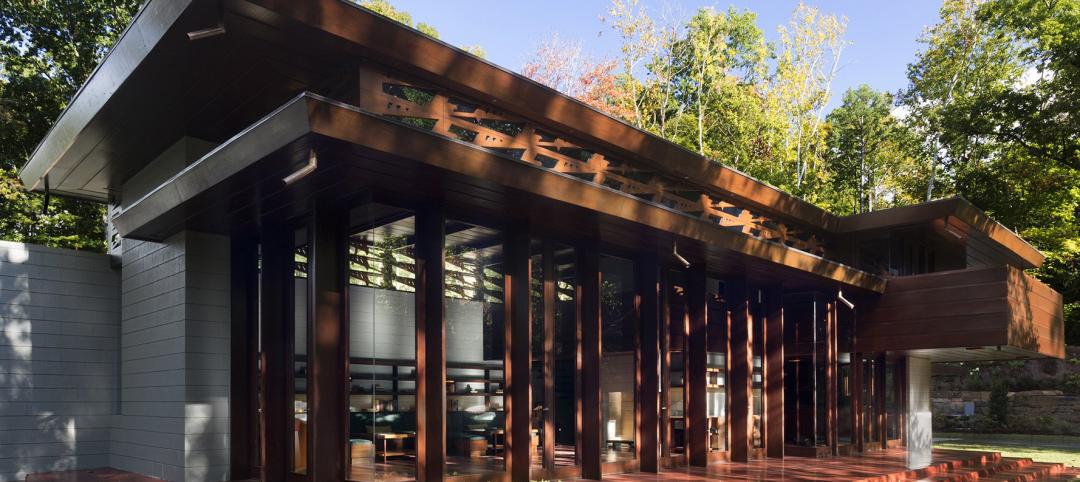The American Institute of Architects (AIA) and the American Institute of Architecture Students (AIAS) committed to timely passage of the National Design Services Act (NDSA), which will give architecture students the same relief from crushing student loan debt, which is already granted young lawyers, doctors and others – in return for community service.
The bipartisan legislation, H.R. 4205, was introduced by Rep. Ed Perlmutter (D-CO) and co-sponsored by Rep. Greg Meeks (D-NY), Rep. Gwen Moore (D-WI) and Rep. Dennis Ross (R-FL).
“Millions of young people aspire to help their communities build a better future – but a lack of opportunity and the crushing cost of education hold them back,” said AIA CEO Robert Ivy, FAIA. “As a result, the design and construction industry faces a severe shortage of talent at exactly the moment America needs to rebuild for the future.
“We commend Congressman Perlmutter for recognizing this issue, for introducing the NDSA and for enlisting his colleagues on both sides of the aisle to work for its ultimate passage,” Ivy said. “I promise that they will have the full resources of the AIA as well as the architecture student community behind them when more than 600 AIA members convene in Washington, D.C. next week as part of the AIA’s annual grassroots conference.”
"The National Design Services Act will help promote sustainable economic development and jobs by ensuring aspiring architects are able to gain valuable experience while giving back to their communities designing public projects such as schools, health clinics, housing facilities and libraries,” said Rep. Perlmutter. “In return, the bill will alleviate some of the barriers new students face as they pursue their dreams in architecture."
“There is no shortage of enthusiasm in our membership for passing this bill,” said Joshua Caulfield, Chief Executive Officer of AIAS. “And we intend to leverage that enthusiasm to the hilt as we go forward and call on our members of Congress.”
Student debt is one of the most critical issues facing the economy – not to mention the next generation of design professionals. Roughly 40 million Americans owe $1.2 trillion in student-loan debt, an amount that surpasses every other type of household debt except mortgage debt. Architecture student graduates come out of school with approximately $40,000 in student loan debt, ranking architecture as one of the disciplines with the highest loan balances in the country.
The NDSA eases this burden by providing loan assistance to architecture students and recent graduates who contribute their design services to underserved areas. The bill would authorize the Department of Housing and Urban Development (HUD) to create a program allowing architecture students to work with Community Design Centers in exchange for assistance with their student loans.
As a result, communities will receive a broad range of architecture services that may not have otherwise been available, and architecture graduates will be induced to stay in the profession.
At a recent meeting of AIAS Milwaukee-Wisconsin where AIA National staff discussed the proposal, architecture students immediately began organizing a phone bank for students to call their members of Congress to urge them to support the bill.
One young architect, Evan Litvin of Philadelphia, has launched an online petition that enlists the support of architects nationwide for speedy passage of the NDSA. The link to that petition can be found here.
Related Stories
Museums | Oct 20, 2015
Frank Lloyd Wright’s Bachman Wilson House finds new home at Arkansas museum
Crystal Bridges Museum reconstructed the 61-year-old Usonian house and will open it to the public in November.
Architects | Oct 20, 2015
Four building material innovations from the Chicago Architecture Biennial
From lightweight wooden pallets to the largest lengths of CLT-slabs that can be shipped across North America
University Buildings | Oct 16, 2015
5 ways architecture defines the university brand
People gravitate to brands for many reasons. Campus architecture and landscape are fundamental influences on the college brand, writes Perkins+Will's David Damon.
Architects | Oct 13, 2015
Architects Foundation expands National Resilience Initiative
The group is launching a search for three more NRI members.
Architects | Oct 13, 2015
Santiago Calatrava wins the European Prize for Architecture
The award honors those who "forward the principles of European humanism."
Office Buildings | Oct 5, 2015
Renderings revealed for Apple's second 'spaceship': a curvy, lush office complex in Sunnyvale
The project has been dubbed as another “spaceship,” referencing the nickname for the loop-shaped Apple Campus under construction in Cupertino.
Airports | Oct 5, 2015
Perkins+Will selected to design Istanbul’s 'Airport City'
The mixed-use development will be adjacent to the Istanbul New Airport, which is currently under construction.
High-rise Construction | Oct 5, 2015
Zaha Hadid designs cylindrical office building with world’s tallest atrium
The 200-meter-high open space will cut the building in two.
Architects | Oct 2, 2015
Herzog & de Meuron unveils design for Vancouver Art Gallery expansion
The blocky, seven-story wood and concrete structure is wider in the middle and uppermost floors.
Airports | Sep 30, 2015
Takeoff! 5 ways high-flyin' airports are designing for rapid growth
Nimble designs, and technology that humanizes the passenger experience, are letting airports concentrate on providing service and generating revenue.

















